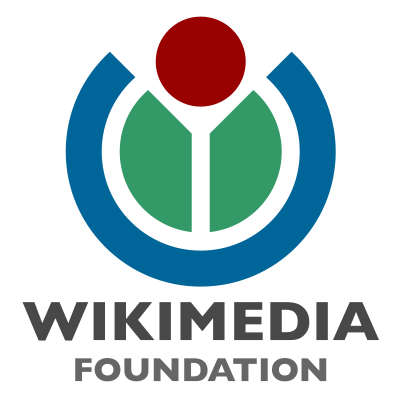Intro: Can the Wikimedia platform, tools and model help solve Oral History’s biggest problem - transcribing and digitizing the overwhelming number of unprocessed oral histories sitting in vaults around the world? Current Oral History MA student & Wikipedia Fellow (and Columbia’s first ever Wikimedian-In-Residence) Darold Cuba explores this possibility in a reflection of a Nov. 1, 2018 talk presented by Doug Boyd in the 2018 - 2019 OHMA workshop series, Oral History and the Future: Archives and Embodied Memory.
After the 2008 recession, Doug Boyd, director of a major oral history center, found that his endowment was suddenly worth MUCH less than it had been before. He could no longer afford to even pretend that they could transcribe all of their oral histories, and so he focused his efforts on indexing. This is how OHMS (the Oral History Metadata Synchronizer) was created, allowing people to link audio and video interviews with metadata, describing their contents in order to make oral histories more easily searchable. Many oral historians have embraced OHMS, but remain limited by the resources needed to generate metadata in the first place. The majority of the world’s oral histories are sitting in archives, functionally unavailable for public use.
Enter Wikipedia!
Bringing Wikipedia’s peer-reviewed, “crowdsourcing” model to Oral History is the next logical step for both the field of oral history and the Wikipedia universe. A future transcription model would take Wikipedia’s existing editing process, which comprises a worldwide base of editors (79,194,006 registered users and 309,295 active users) who actively write, proofread, fact-check, and generally housekeep to maintain Wikipedia’s scope and accuracy standards. As editors season, many turn from generating content about their favorite topics to taking more of a leadership role in monitoring the cultivation of those areas. Now imagine these editors have access to oral history archives of interviews related to their interests. Once equipped with OHMS technology, they’ll be able to spend their time transcribing, audit-editing, indexing, and annotating (with links to other relevant Wikipedia properties). Suddenly, relatively knowledgeable parties are producing a critical mass of metadata that will kick off a positive feedback cycle of access and searchability.
This volunteer energy is already being deployed throughout Wikipedia tools and platforms, and harnessing it with OHMS will build on Doug Boyd’s original mission to make oral histories available for widespread use and learning. The pros are limitless, the cons are minimum. One problem with crowdsourcing for metadata production is controlling for low-quality work or bad actors, and Wikipedia already has a robust infrastructure in place to detect and resolve this. A protected editing model akin to Google Docs “suggested editing” would address institutional wariness of the “unqualified” (non-degreed, non-certified, non-archivists and non-librarians) masses having access to their potentially sensitive vaults and databases.
As for future growth, the online encyclopedia resource is only the most well-known of Wikipedia’s projects. The Wikimedia Foundation already operates a wide range of fellowships, residencies, visiting scholars program and other such partnerships. These existing Wiki-Institutional alliances can be harnessed (and more can be fostered) towards the goal of transcribing, indexing, annotating and archiving oral histories, even creating a worldwide consortium.
A major issue that even Wikipedia isn’t immune to is one laying siege to the foundations of Western society, as media, academia and other institutions intersect with technology: the exponential effects of systemic bias, aka the replication of the status quo of white supremacy race/ism. Under this system, a self-selecting platform will continue to self-select. The oral histories of “privileged” “men” who “need to be white” and hail from the “anglo global north” (to use writer Ta-Nehisi Coates’s method of exposing such cultural constructs, as, well, constructs) are unfortunately prioritized by “privileged” “men” who “need to be white” from the “anglo global north,” and these make up the majority of Wikipedia’s editing base. But the good news is, as in tech, academia, and all of the other affected areas of western life (read: all of them!), there are groups dedicated to battling these issues, offline and online as well. AfroCrowd, WhoseKnowledge, and WikiTongues are just a few of the Wikimedia usergroups that directly counter systemic bias at the Wikimedia Foundation and on its platforms.
The field of oral history is centered on such theoretical predicaments as democratization vs. authority vs. interpretation, (inter)subjectivity, privacy vs. dissemination--the list goes on. An OHMS x Wikipedia collaboration won't solve these conflicts overnight, but the combined curation and self-selection of the initial handlers, and the internal peer-review protocol, would ensure a foundation of people who care deeply about the material, the process, the quality, and future use.
Oral history as a field needs these kind of particular innovations as vaults and archives buckle under the weight of unprocessed interviews which hold precious knowledge the world needs. As Wikipedia’s mission is to make all of the world’s knowledge free, open, and accessible to all, this is the next logical step in its development.
Darold is a journalist and producer, documenting, preserving and conserving the histories of freedom colonies - communities that escaped from and resisted western colonialism. A descendant of numerous of these communities, he draws on his families’ stories as well as others. Darold seeks to share these stories through digital and next generation technology, as well as the physical (and meta-physical?) preservation of freedom colony spaces throughout the planet.



